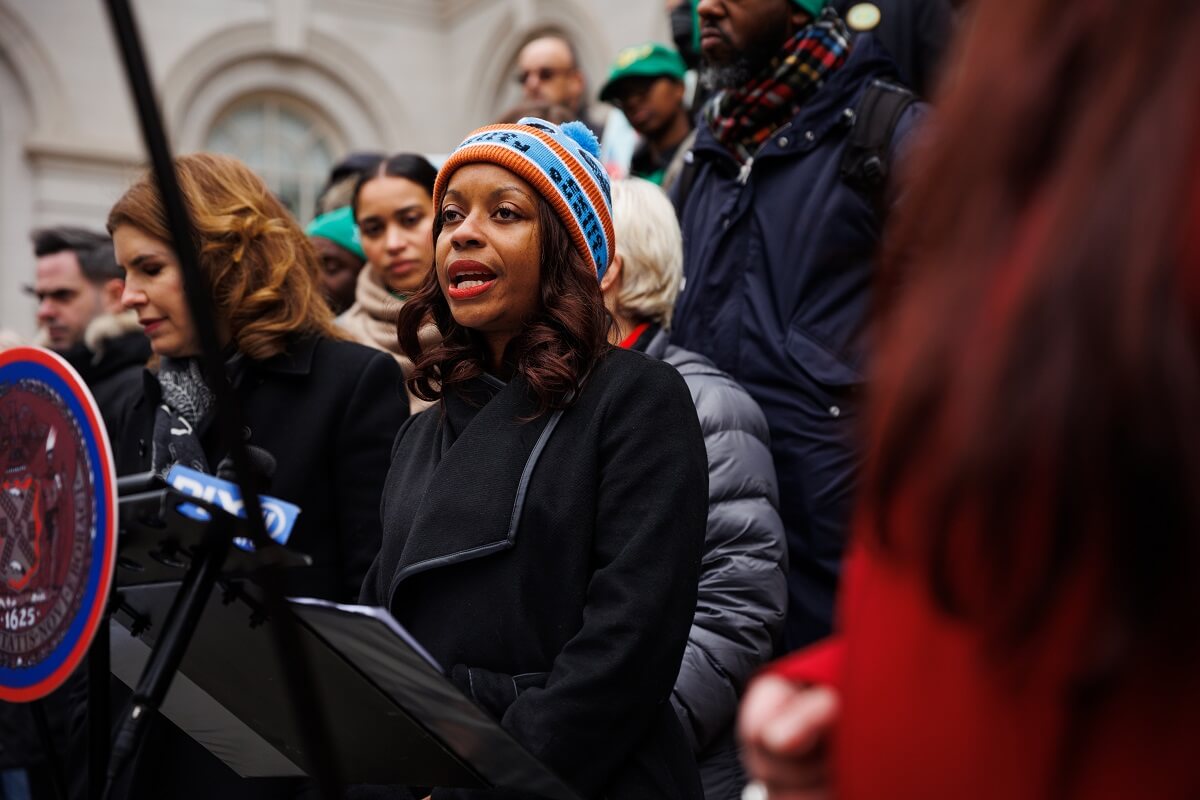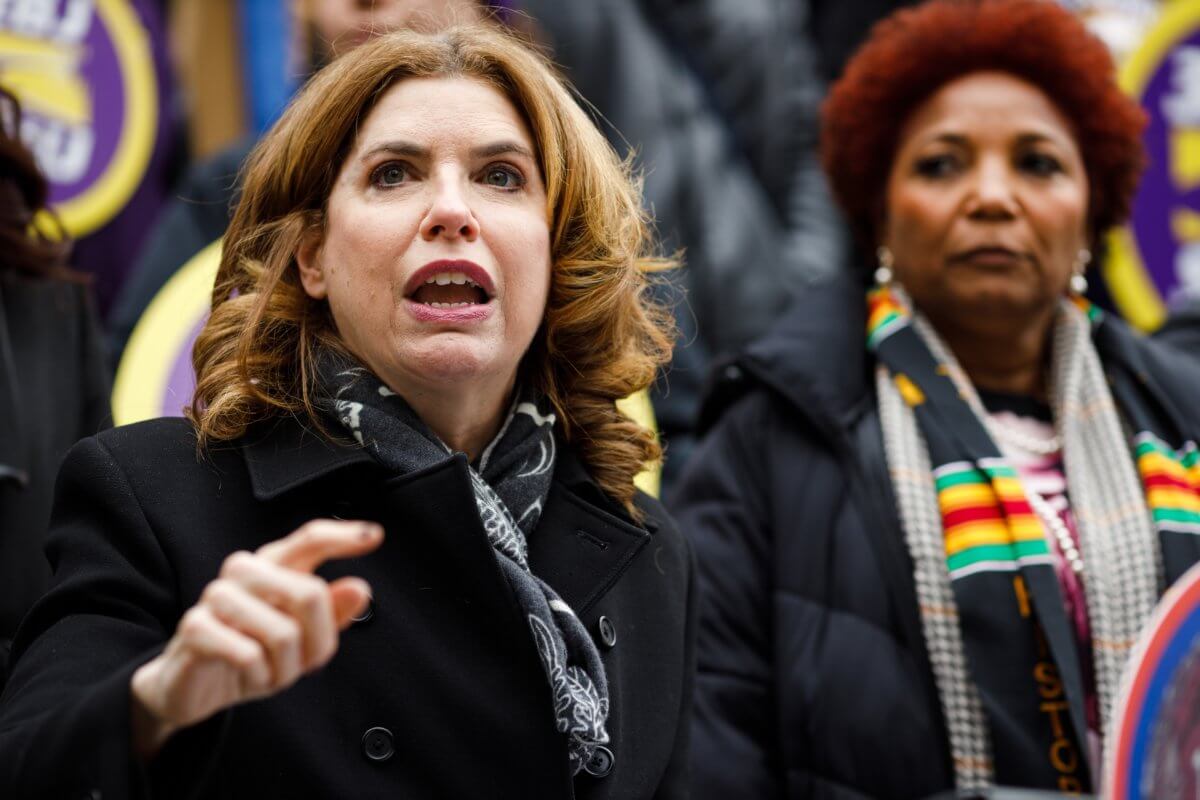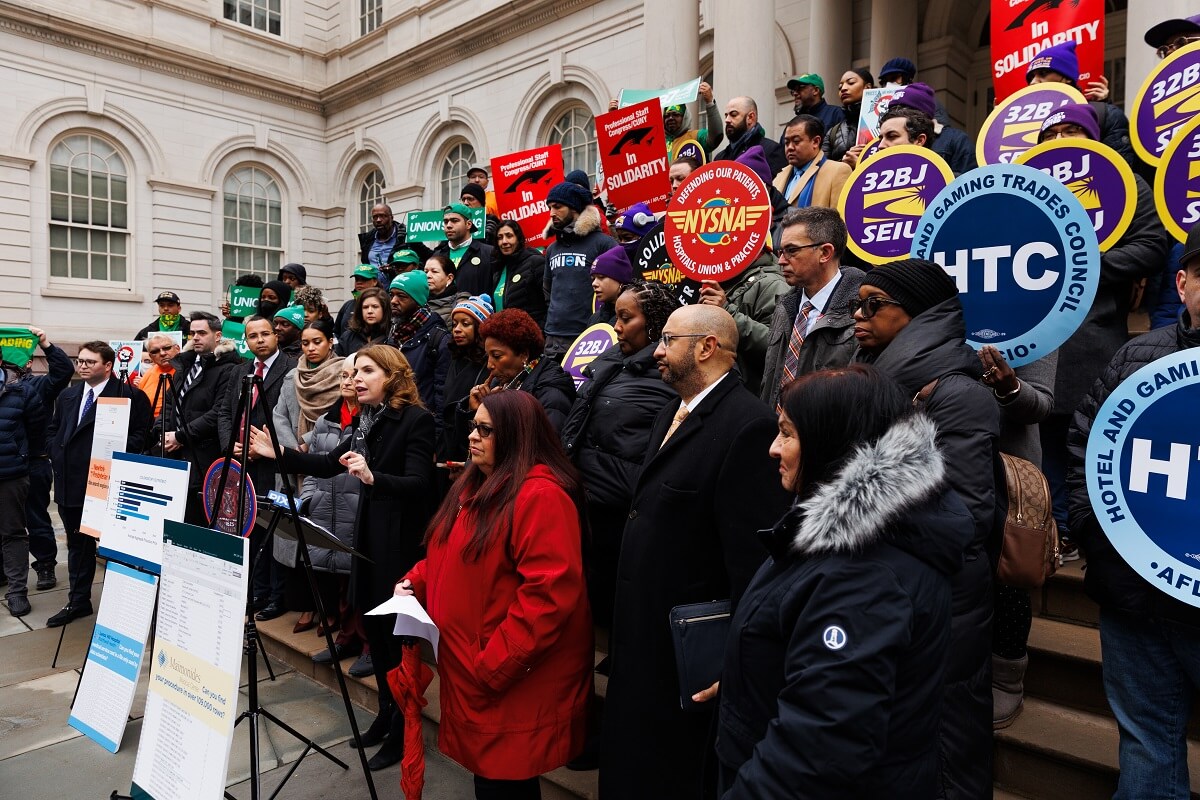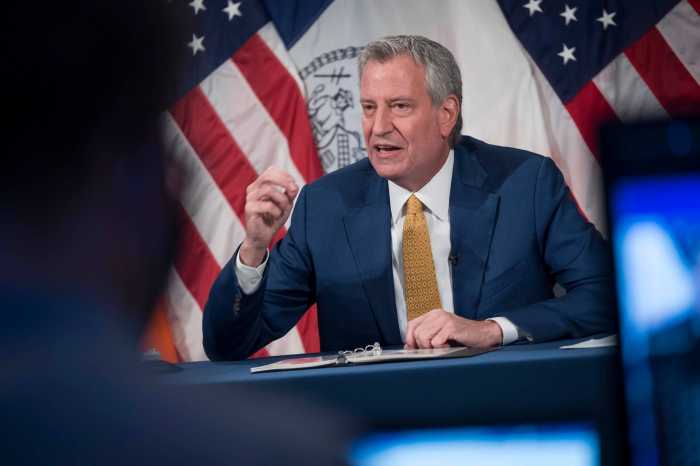With hospital prices for care still soaring, several City Council Members joined public section union members and healthcare advocates on the steps of City Hall Thursday to rally in support of a bill seeking greater price transparency at New York medical centers.
The bill, which was also introduced Thursday, aims to provide consumers with greater transparency when it comes to hospital prices. If enacted, the legislation also stands to save the city big bucks, as it would put pricing pressure on hospital procedures — thereby lowering the city’s cost of providing healthcare for public sector employees.
“Right now, there is no price transparency around hospital prices,” said Manhattan Council Member Julie Menin, who spoke at the rally and is the prime sponsor of the bill that is known as The Healthcare Accountability & Consumer Protection Act. “So, if you’re a woman and you’re giving birth in New York City, you might be charged $55,000 if you need a C-section at Montefiore or $17,000 at another New York City hospital.”
The bill, which has 43 sponsors to date (a super-majority of the 51-member City Council), would create the nation’s first government-level Office of Healthcare Accountability, which would be tasked with operating a public website that provides information on the costs of hospital procedures at each hospital.
Consumers would be able to know ahead of time what they are likely to pay for a procedure, allowing them to seek care at a hospital-based on price.
Additionally, the Office of Healthcare Accountability would be in charge of auditing expenditures on hospital costs for city employees, and monitoring hospital compliance with pricing transparency measures.
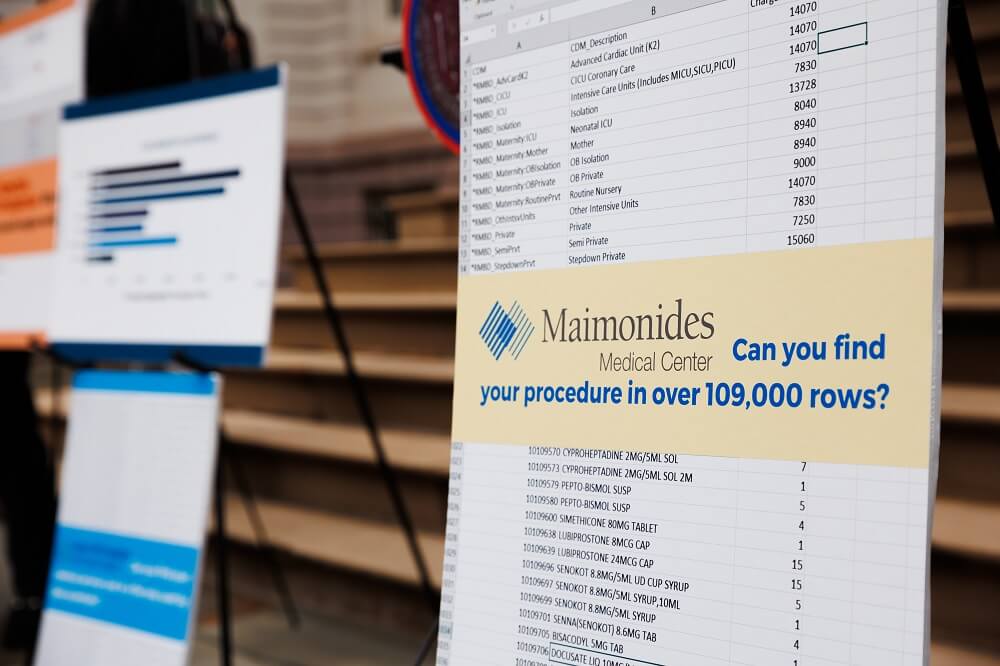
Advocates for the bill say that it could save the city billions of dollars, as New York City is likely overpaying private hospitals based on pricing patterns across the state.
“It could save up to $2 billion a year if we can harness the city’s purchasing power. The city is spending $11 billion on healthcare — it’s unsustainable,” Menin said. “Imagine what we could do with that money. We could build more affordable housing, we could use it for education or let me just say, municipal raises.”
Hospitals are already required by a new federal rule to provide price transparency, but the legislators argue that compliance is poor and greater clarity — through a single website — is needed. An August report from a healthcare advocacy group estimated that only 16% of hospitals are in compliance with all of the price transparency rule requirements.
Brooklyn City Council Member Mercedes Narcisse, who is also chair of the council Hospitals Committee, spoke at the rally and said the bill is about fairness.
“We’re not here to regulate, we’re here to talk about transparency,” Narcisse said. “If healthcare is not affordable to all New Yorkers, our system is failing. Something is critically wrong when patients are fighting for their lives and hospitals are fighting for their last cent.”
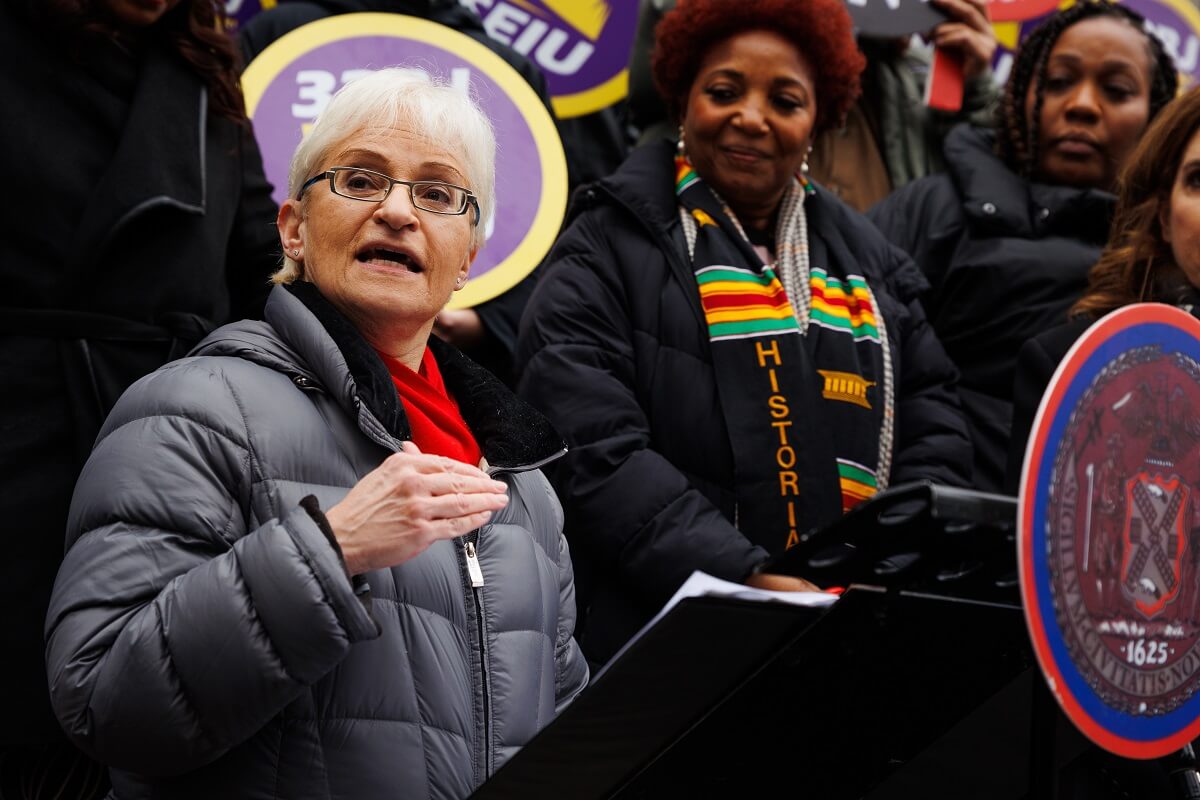
Queens Council Member Lynn Schulman, who is the chair of the council’s Health Committee and was also at the rally, said the lack of transparency is “totally insane.”
“Today is special because we’re a step further in getting this enacted. We have to be able to have affordable healthcare and it’s getting further and further away from us. This legislation is going to help us to pull that back,” Schulman said.
Meanwhile, Brooklyn Council Member Lincoln Restler called for the bill to be passed.
“These hospitals are fleecing the people of New York City, they are fleecing the workers of New York City, they are fleecing tax payers and we are gonna stop it, this bill is gonna make it happen. We are gonna bring real accountability to healthcare costs that have been out of control for longer than I’ve been alive.”
The bill, however, has generated opposition from the private healthcare industry.
The Greater New York Hospital Association, a trade group representing a number of private hospitals, said the legislation is unnecessary, noting that its member hospitals already comply with federal law by posting their prices online and help consumers with online calculators so they can estimate their costs. The group describes the bill as “deeply flawed” and said it could lead to false accusations of hospital non-compliance.
David Rich, the executive vice president of the GNYHA, spoke at a council hearing Thursday on the bill and said “the city has no role, and should have no role, in reinterpreting Federal regulations in ways the Federal government never imagined, and grading hospitals using its own interpretations. “
